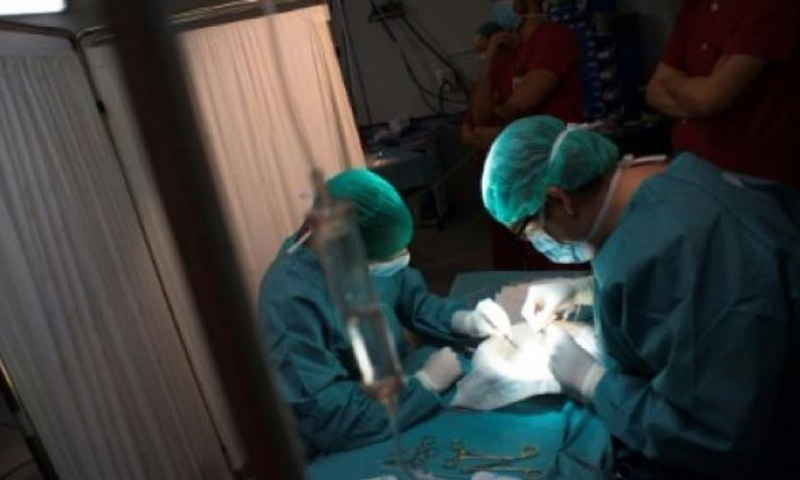KARACHI: Experts at the Sindh Institute of Urology and Transplantation (SIUT) on Thursday said Pakistan was the eighth largest country with high prevalence of kidney diseases causing 20,000 deaths annually.
“And this trend is growing alarmingly,” said an expert at a day-long public awareness programme organised by the SIUT at its Dewan Farooq Medical Centre Karachi marking the World Kidney Day.
Similar events were held at the institute’s Primary Healthcare Centre Kathore, SIUT Chhablani Medical Centre Sukkur and SIUT Camp at the press club of Mithi.
The World Kidney Day is an international event celebrated in March across the globe in collaboration with the World Health Organisation, International Society for Nephrology and The International Federation of Kidney Foundation.
This year’s theme was ‘Kidney Health: For Everyone Everywhere’.
The experts said the leading cause of chronic kidney diseases were primarily diabetes, kidney glomerular diseases and high blood pressure in addition to excessive use of painkillers, uncertified herbal medicines, genetic disorders, defects at birth, stone disease, infections, environmental pollution, unhygienic conditions and old age.
They said the unfortunate fact of the disease was that most of the kidneys got already damaged by the time symptoms of such diseases appeared.
The experts said key symptoms and features of kidney diseases included swollen face and feet, fatigue, lack of appetite, lack of concentration, blood in urine, frothy urine, vomiting, difficulty in breathing etc.
Explaining key measures for preventing kidney diseases, the experts advised people for low intake of salt and oily foods, staying hydrated, eating more fruits and vegetables, remaining physically active, getting regular check-ups with doctors, no consumption of alcohol and tobacco, maintaining ideal weight, controlling sugar levels for diabetic patients, controlling high blood pressure in hypertensive patients and compliance with medications as directed by physicians.
Lectures and tutorials related to kidney diseases were delivered and educational publications were distributed to create awareness among the masses about kidney ailments.
Dr Sarfraz Sarwar, Dr Munawar Khaliq, Dr Sobia Naheed, Dr Fouzia Mushtaq and dietician Naila Rasheed were among the experts who were engaged in the day’s activities.
A large number of people participated in events and availed the facilities offered.
Kidney Institute opens
Mayor Wasim Akhtar on Thursday inaugurated the Karachi Institute of Kidney Diseases (KIKD), which is said to be the second state-of-the-art facility of its kind offered by the public sector in the teeming provincial capital alongside the SIUT.
The mayor, flanked by Metropolitan Commissioner Saif-ur-Rehman, unveiled the plaque and visited various sections where he met patients and presented them bouquets.
The mayor was informed that the facility would conduct dialysis of 75 patients every day.
Officials said the KMC had established a kidney centre at the same building in 2012, but it could not offer treatment to patients until 2017. However, upon insistence of the mayor, it conducted first dialysis in November 2017 and provided medicines to patients.
Published in Dawn, March 15th, 2019














































Dear visitor, the comments section is undergoing an overhaul and will return soon.